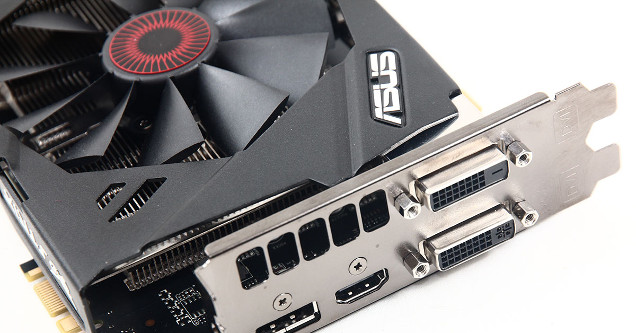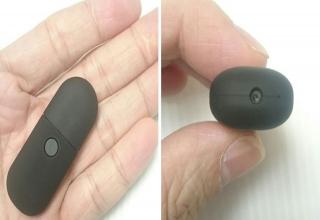
As we wrap up 2017, one of the biggest things to talk about in gaming during the year is how consoles have become more like PCs. We now have mid-generation upgrades, X86 architecture, and subscription-based services. Heck, you even get a PC version of every first-partyXbox One game you buy.
Things are not like they used to be, to say the least. And really, a lot of people are still holding onto outdated misconceptions about what PC gaming is. To help bust these lies we're going to reveal the truth with five major points.
1. "Hardware Becomes Outdated Within Months"
Once upon a time you'd find your PC out of date seemingly faster than you could put it together. Especially in the 2004 to 2010 period, technological advancement moved so quickly that it was expensive to keep up. This set a bad precedent for a lot of gamers that scared them away.
The truth is that the industry has hit a steep hill of diminishing returns during the past few years. Even the most simplistic game worlds are so beautiful that every push to make them look better requires huge leaps in performance.
On one hand this has made art design during game development a challenge as developers have had to work hard to make their games visually stand out from the competition. On the other hand, this has allowed older hardware to stay relevant for a much longer period of time.

A lot of the talk about hardware becoming outdated was back in the days of Crysis, when game graphics saw significant progress every year that warranted a new graphics card. However, these days you can get away with using a graphics card that's several years old provided you buy something mid-tier or higher.
Take for example the Nvidia GTX 770. This card was released in May 2013, and is still able to play every game out there. It has even held a lot of its resale value, which is a factor to take into consideration when investing in hardware long-term.
Once you decide that you do want to upgrade, there are several affordable GPU options that provide VR and 1080p 60FPS ready performance for less than $180. Being outdated is just not something you need to be concerned with as long as you make a smart initial investment.
2. "PC Gaming Is Ridiculously Expensive"
Cost of entry has always been PC gaming's greatest perceived weakness. Most consumers want to pay bottom dollar to play the latest games, and that means console hardware gets an edge—which is now available for $250 or less.
PC gaming's abrasive costs may have once been a serious barrier, but not so much anymore. Component costs now range across the spectrum, with mid-level hardware being more accessible than ever before.
Let's look at a quick example:
Case: Corsair Carbide Series 100TR - $49.99
CPU: AMD R3 1200 - $109.99
GPU: EVGA GTX 1060 - $199.99
Mobo: MSI B350M Pro-VDH - $69.99
RAM: 8GB Corsair Vengeance DDR4 - $99.99
PSU: EVGA 500W 80+ - $37.99
Storage: Crucial 120GB SSD - $59.99
TOTAL: $627.93
This build is capable of playing every game available on high settings at 1080p. Better yet, it has an SSD, so load times will be drastically lower than on consoles.
While you could argue that it's still several hundred dollars more than a console, it's important to keep in mind that it has many more uses than just PC gaming. It can be used for work, e-mail, multimedia, and many other tasks in a way that consoles simply can't compete with. In addition, it can survive generational jumps. While new consoles traditionally make your last-generation games irrelevant, PC games survive forever.
High costs are usually associated with not already having a monitor and peripherals, which can jump the cost up another $200 to $300 depending on what products you're interested in. Though, the same can be said of console gaming where you need a TV (more expensive than monitors). In regards to peripherals, you can get a good mouse and keyboard for the same price as a PS4 or Xbox One controller.
3. "Putting Everything Together Is A Nightmare"
Setup is something that most consumers get hung up on when considering a PC build. It's understandable that many people don't want to have to piece together components, and just want to plug the device in and have it work. But there's more to this than meets the eye.
For those who are up for a couple hours of DIY, there are countless YouTube videos available that explain the process of installation. It isn't a laborious process thanks to industry standards and tons of reference material being available. Alternatively, you can have a friend over who knows how to build PCs—I've done this for three friends/family in the past year.
For those who want no part in putting together a PC, the good news is that pre-builts are better than ever. Several retailers offer solutions that allow you to connect cables and go without any form of setup required.
For example, Best Buy is selling the CyberPowerPC Xtreme Desktop, which comes with better hardware than those listed above, for $719.99.
Note that when you purchase a pre-built you pay a small premium. If you're into saving money it's always better to DIY when you're up for it. At least you have a second option.
4. "It Doesn't Have Any Good Exclusives"
One common misconception is that big AAA exclusives only go to consoles, particularly PS4. While you might not ever be able to play Uncharted or The Last Guardian on a PC, it has some killer apps of its own.
In 2017 PC received virtually all the big multiplatform titles. These included Resident Evil 7, Nier: Automata, Wolfenstein II: The New Colossus, and more. In most cases the PC version of these games was considered the best version, with higher graphics capability and the most competitive online communities.
These games were supplemented by a great cast of PC/Xbox exclusive titles, including:
There's also a point to be made that PCs have access to decades worth of games. Backward compatibility isn't a problem as you can install and play classics like DOOM, System Shock, Half-Life, and thousands of other titles without having to purchase older hardware.
And as for the games that are exclusive to PC, they tend to have far more replay value than console exclusives. Games like Dota 2, World of Warcraft, and Civilization VI tend to produce hundreds if not thousands of hours of playtime. Many PC games can be modded, too.
5. "You Can Only Play PC Games At A Desk"
There's nothing wrong with preferring a relaxed couch environment over playing games at a desk. As someone who works from home on a gaming PC, I try to find any excuse to game in the living room when possible.
Thankfully, PC gaming has a solution for that. There are a multitude of configurations you can employ to play PC games without sitting up close and personal to your keyboard and mouse. For example, most games support various input devices, including the PS4 and Xbox One controllers. With this you can sit back and relax while playing.

When you want to game on the couch, Steam Link is an outstanding solution. What it effectively does is send the image that would go to your PC monitor across the network to your TV. Using Steam Big Picture mode it functions similarly to a console with an intuitive interface and plenty of game support. For all intents and purposes, it turns your gaming PC into a console, although with access to a much larger library of games (thousands).
Alternatively, you can hook your PC up to a TV. It might be a bit clunky depending on your living room setup, but it works.






0 Comments